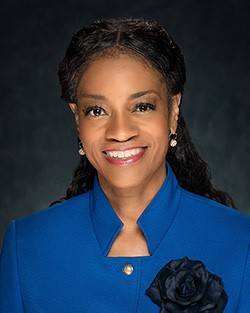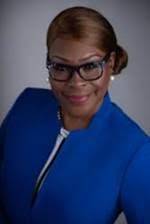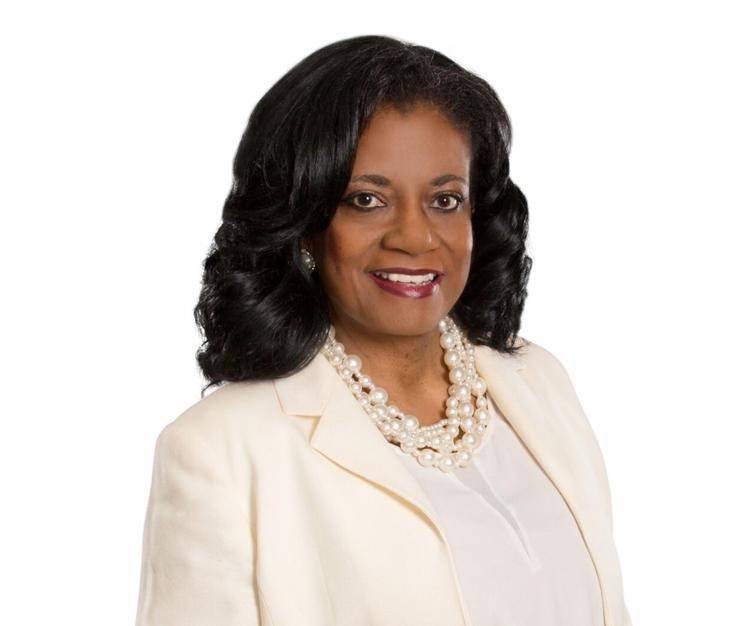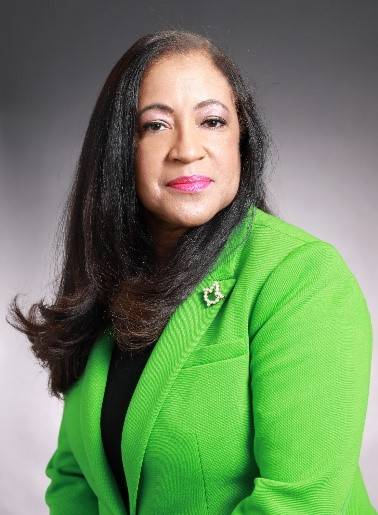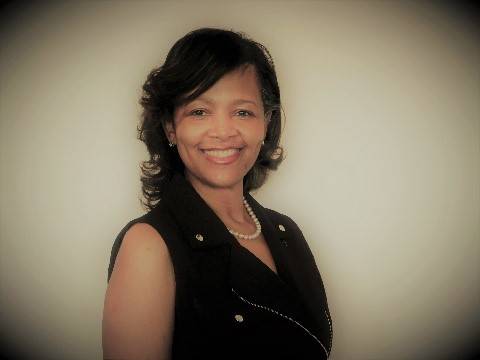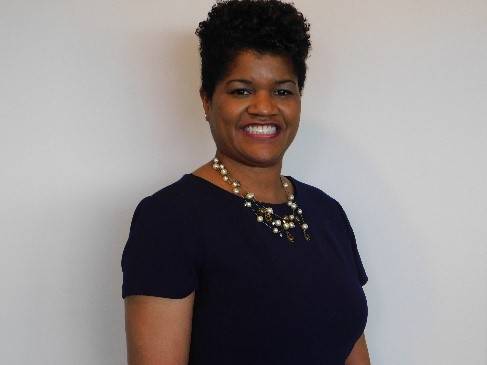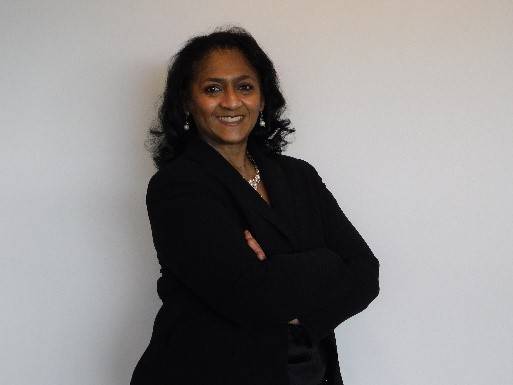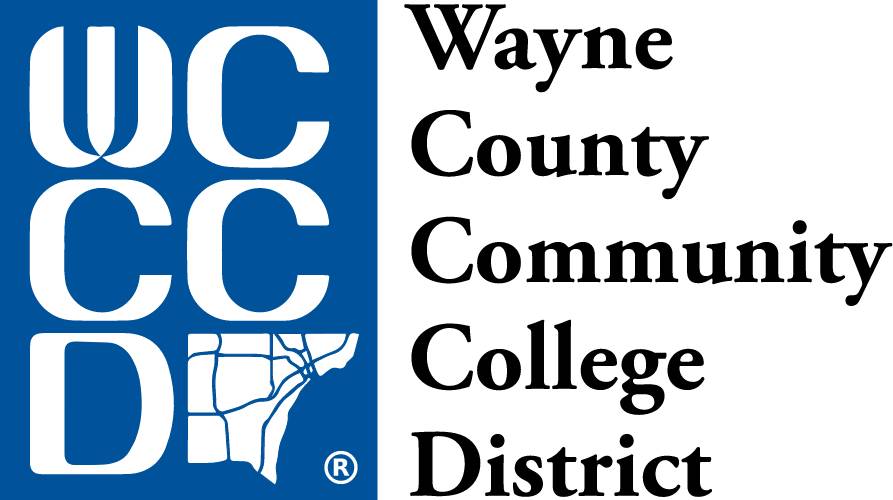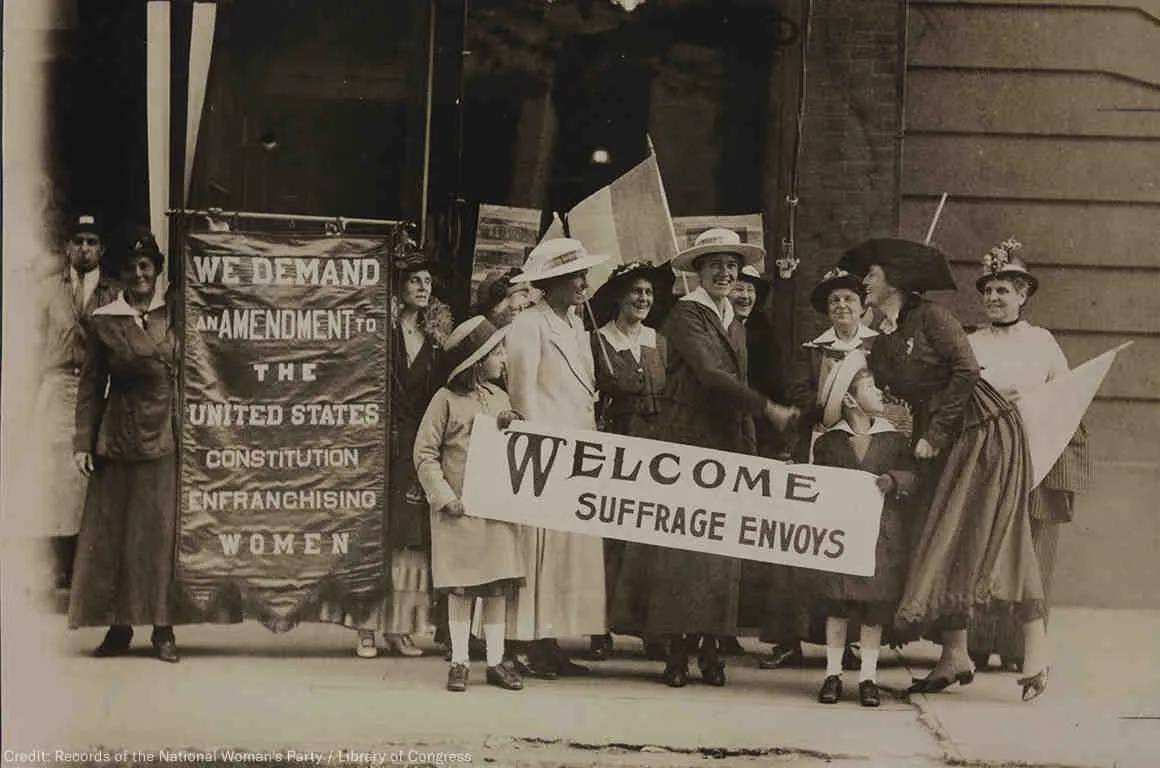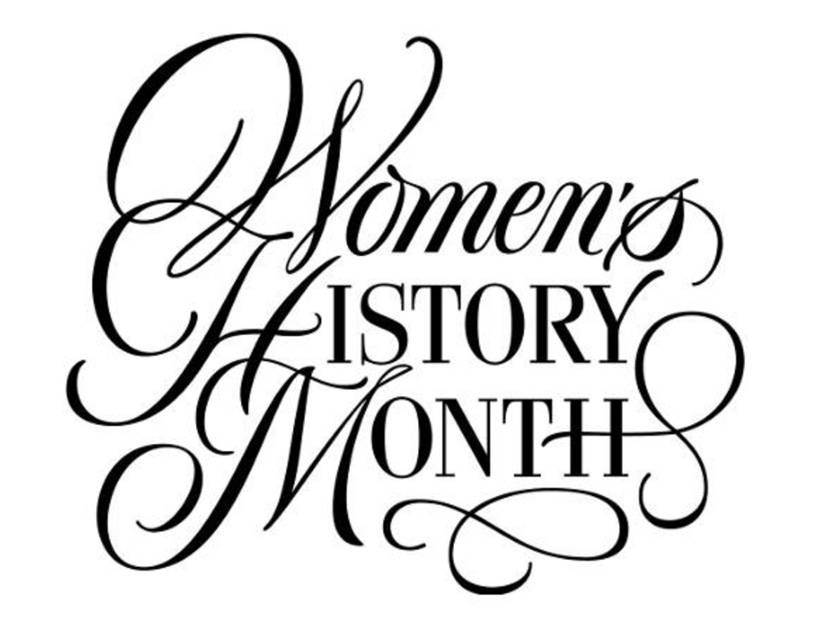Mentoring Mondays
Permanent link for Mentoring Mondays - June 7, 2021 on June 7, 2021
On June 1, 2020, the MI-ACE Women’s Network launched the “Advancing Women Engagement Plan” to address the need to stay engaged and connected during the pandemic when face-to-face activities were suspended. The goal of that plan was to build a calendar of “virtual” events and engagement opportunities for members from June through December. As we enter June 2021, we will celebrate one year operating under that plan and some really amazing things have happened.
Part of that plan was the launch of the “Mentoring Mondays” website posts, and we have shared many wonderful leadership and career building tips and strategies over this past year. As we close the month of May, our “recognition month,” we would like to give thanks to the Network’s Executive Board for their bold and innovative leadership during a time of uncertainty.
2020-2021 Executive Board
Dr. Kimberly Hurns, State Chair
Lennetta B. Coney, Chair, Membership Committee
Dr. Reva Curry, Co-Chair, Institutional Representatives Committee
Dr. Claudia Douglass, Past State Chair
Dr. Deveta Gardner
Dr. Nancy M. Giardina
Marlanna Landeros, Co-Chair, Women of Color Collaborative
Dr. Stephanie Lee, Co-Chair, Women of Color Collaborative
Dr. Linda Logan, State Chair-Elect
Dr. Rhonda Longworth, Co-Chair, Professional Development Committee
Dr. Amy Mansfield Leah Monger, Co-Chair, Institutional Representatives Committee
Dr. Mamiko Reeves, Chair, Distinguished Women Leadership Award Committee
Dr. Mary Jo Sekelsky, Treasurer
Dr. Connie Tingson-Gatuz, Chair, Annual Conference Committee Emerita Members
Dr. Diane Anderson
Nancy L. Barker, Secretary
Deborah Z. Bloom
Dr. MaryLee Davis
Dr. Lynette Findley
Martha J. Grier, Co-Chair, Professional Development Committee
Dr. Christine Hammond
Dr. Marlene Kowalski-Braun
Patricia M. Lowrie
Glenna Frank Miller
Dr. Jacqueline D. Taylor, Co-Chair, Nominating Committee
Dr. Margaret E. Winters
On behalf of all member institutions, we give thanks to these courageous women for their outstanding leadership. We salute our 2020-2021 Executive Board with this quote:
“To dream anything that you want to dream.
That is the beauty of the humankind.
To do anything that you want to do.
That is the strength of the human will. To Trust yourself to test your limits – that is the courage to succeed!”
Posted on Permanent link for Mentoring Mondays - June 7, 2021 on June 7, 2021.
Permanent link for Mentoring Mondays - May 24, 2021 on May 24, 2021
The MI-ACE 2021 Virtual Annual Conference is rapidly approaching. If you have not already registered, please do so now as available seats are nearly filled. Don’t miss the opportunity to be part of this historic event. We are especially excited about our new pre-conference feature, “Making the NetWORK - 1:1 Mentoring Sessions.”
These mentoring sessions will offer an opportunity for attendees to engage in conversations to enhance their careers and learn more about the Network. They are designed to be short but meaningful one-time sessions, although mentor and mentee might agree to schedule additional time to chat. We are encouraging mentees to sign-up at: https://forms.gle/ebpfXrLF1XHTWT7QA. Since a large number of registrants are “first time” attendees, we are encouraging these first timers to take advantage of these sessions.
We are also encouraging Executive Board members and Institutional Representatives to volunteer to serve as mentors by sending an email to Martha Grier, Co-Chair of the Professional Development Committee, at [email protected].
Remember, the theme of this year’s Virtual Annual Conference is “Advancing Women in Higher Education,” and is scheduled for Monday and Tuesday, June 14-15. Registration closes June 1, 2021. To register, click on the following link: https://www.gvsu.edu/miace/annual-conferenceand-network-events-23.htm.
We would like to thank the Conference Planning Team at Madonna University and the WOCC Planning Team for putting together an outstanding lineup of keynote speakers and breakout sessions. See you at the conference!
Posted on Permanent link for Mentoring Mondays - May 24, 2021 on May 24, 2021.
Permanent link for Mentoring Mondays - May 17, 2021 on May 17, 2021
Institutional Representatives
Institutional Representatives are the backbone of the Michigan ACE Women’s Network, providing information about the network to member campuses.
This week, we salute MI-ACE IRs! The Role of an Institutional Representative As an affiliate of the American Council on Education (ACE) Women’s Network, the Michigan ACE (MI-ACE) Women’s Network is committed to identifying, developing, encouraging, advancing, linking, and supporting women in higher education. Each member public, private, 2-year, and 4- year college or university in the state appoints one or two Institutional Representative(s) (IRs) who are responsible for the following basic duties:
Serve as the institution’s official representative to the MI-ACE Women’s Network. At minimum:
- Participate in one IR event annually,
- Attend the Annual State Conference, and
- Submit the IR Annual Report.
Additional IR duties include:
- Enlist the support of other women at their institution by assessing needs and facilitating institutional professional development programming that represents the mission of the MIACE Women’s Network.
- Establish and/or collaborate with other campus programs/activities focusing on women.
- Educate women at their institution about the Network’s mission and major initiatives (e.g. Annual Conference, Young Women Strong Leaders, Women of Color Collaborative, public policy agenda).
- Facilitate communication with women throughout their institution by disseminating information provided by MI-ACE regarding opportunities for professional development, job shadowing, and professional advancement; grant/research funding; call for papers/proposals from MI-ACE, its members institutions or national ACE.
- Encourage attendance at the Annual Statewide Conference, Young Women Strong Leaders Conference, Women of Color Collaborative and other programs sponsored by the MI-ACE Women’s Network.
- Keep their president (or administrator designated by the president) informed of the Michigan ACE Women’s Network strategic goals and activities.
Meet your MI-ACE IRs!
- Alma College: Janie Diels and Maria Jones
- Andrews University: Alayne Thorpe and Andrea Luxton
- Aquinas College: Erin Peraino and Heather Kesselring-Quakenbush
- Baker College-Clinton: Patty Kaufman and Kristen Conte
- Baker College: Tanya Lewis and Voula Erfouth
- Bay College West: Gina Wollner and Sarah Davy
- Bay de Noc Community College: Erica Mead
- Calvin University: Michelle Lloyd-Paige and TaRita Johnson
- Central Michigan University: Amanda Mae Scherr and Marcia Taylor
- College for Creative Studies: Dayna Davis
- Davenport University: Deb Cooper and Gilda Gely
- Delta College: Elsa Olvera and Loyce Brown
- Eastern Michigan University: Colleen Croxall and Julia Heck
- Ferris State University: Gayle Lopez and Leah Monger
- Glenn Oaks Community College: Tammy Russell and Tonya Howden
- Grand Rapids Community College: Amy Mansfield and Sheila Jones
- Grand Valley State University: Jessica Jennrich and Karen Gipson
- Henry Ford College: Shai James Boyd and Susan Shunkwiler
- Hope College: Cady Short-Thompson
- Jackson College: Kate Thirolf and Tina Marie Matz
- Kalamazoo College: Sarah Westfall
- Kellogg Community College: Karrie Langdon and Sara Reed
- Kettering University: Christine Wallace and Viola Sprague
- Lansing Community College: Lisa Mazure, Patty Spagnuolo and Saleena Samuel
- Lawrence Technological Institute: Sibrina Collins and Susan Poli-Smith
- Macomb Community College: Carey Wellhausen and Megan Vinyard
- Madonna University: Christine Benson and Jessica Bielawski
- Michigan School of Psychology: Amanda Ming and Diane Zalapi
- Michigan State University: Cindi Leverich
- Mid Michigan Community College: Amy Goethe and Karley Roy
- Mott Community College: Sounya Walker and Wanda C. Brown
- Muskegon Community College: Bonita Jackson and Trynette Lottie-Harps
- Northwood University: Mamiko Reeves and Nancy Finazzo
- Oakland University: Anita Hicks and Joi Cunningham
- Olivet College: Areerat (Poy) Lertchaipitak and Cynthia Noyes
- Saginaw Valley State University: Betsy Diegel and Deborah Huntley
- Schoolcraft College: Michele Kelly and Jodie Beckley
- University of Detroit Mercy: Karen Lee and Pamela Zarkowski
- University of Michigan-Ann Arbor: Cheryl McPherson and Diane Brinson-Days
- University of Michigan-Flint: Sadé Wilson and Michelle Silva
- Washtenaw Community College: Andrea Hemphill and Shana Barker
- Wayne County Community College District: CharMaine Hines and Paige Niehaus
- Wayne State University: Dawn Pauli and Kathryn Wrench
- Western Michigan University: Deveta Gradner
Posted on Permanent link for Mentoring Mondays - May 17, 2021 on May 17, 2021.
Permanent link for Mentoring Mondays - May 10, 2021 on May 10, 2021
When you visit the MI-ACE Network’s website and click on “about MI ACE” you will find these words at the beginning:
“The Michigan American Council on Education Women’s Network (MI-ACE) is the professional network for Michigan women in higher education. We work in concert with the ACE Office of Inclusive Excellence Group nationally to identity, develop, encourage, advance, link, and support (IDEALS) women in higher education.”
This Network is a wonderful resource in the advancement of careers, and we are extremely proud of the women who have been a part of our network and have advanced to major leadership positions as college presidents. On behalf of the Network, we extend congratulations to our esteemed colleagues now leading higher education institutions across the country
Dr. Kenya Ayers
President of Tarrant County College, Northeast Campus, Hurst, TX
effective July 1, 2019
Dr. Kenya Ayers served William Rainey Harper College (Palatine, IL) as Vice President and Chair of the Board of the Northwest Educational Council for Student Success (NECSS) and previously was Dean, Academic Enrichment and Engagement. NECSS is a secondary- and postsecondary collaborative for college and career readiness, which encompasses twenty-three communities. While in Michigan, Dr. Ayers served as Associate Provost for Kettering University for six years and led academic support operations including institutional effectiveness, international studies, the Academic Resource Center, the First Year Experience program and the Center for Excellence in Teaching and Learning. She also served as Dean of Student Services for Trinity Washington University in Washington, D.C. Her other higher education experience includes Learning Skills Specialist and Academic Counselor at the University of Houston, Coordinator of Academic Support Services at Florida Atlantic University and Coordinator of the Minority Teacher Initiative at Oakland Community College. President. Ayers is a former State Chair of the MI-ACE Network.
Dr. DeAnna R. Burt-Nanna
effective Friday, May 21, 2021
Dr. Burt-Nanna will become President of Monroe Community College, SUNY, Rochester, NY. Dr. Burt-Nanna is a staunch advocate for diversity, equity and inclusion, educational access and attainment, philanthropy, and workforce development at local, state, and national levels. She is an Aspen Rising Presidents Fellow and a 2019 graduate of the Thomas Lakin Institute for Mentored Leadership. She currently serves as the Vice President of Student and Academic Affairs for South Central College, located in Faribault and North Mankato, Minnesota, a unit of the Minnesota State Colleges and Universities System. She brings more than 20 years of experience in higher education, including serving in faculty and administrator roles at community colleges. Dr. Burt-Nanna has contributed to the success of educational institutions in Michigan and Minnesota, including those that are two- and four-year, union and non-union, public and private, multi-campus and statewide systems. Her leadership has advanced strategic priorities in support of student success, operational efficiency, and organizational culture change. She has also held various positions in business and industry. Incoming President Burt-Nanna is a former member of the MI-ACE Network’s Executive Board.
Dr. Lisa Copprue Jones
effective July 15, 2021
Dr. Copprue Jones will become President of Colorado Northwestern Community College (CNCC), Rangely, CO. Dr. Copprue Jones, a Henry Ford College (HFC) alumna and former Vice President, will become the first African-American woman to assume the Presidency at CNCC and in the Colorado Community College System (CCCS) as a whole. From 2007-17, Jones served as Vice President of Student Affairs at HFC. Other positions Jones has held include Vice President/Associate Provost/Dean of Students at Marygrove College in Detroit, and Director of Student Life at the University of Detroit Mercy. For Jones, the role and value of community colleges – especially those in rural and under-resourced locations – means providing supportive and empowering pathways for students to achieve social mobility and to set the path for future generations. “As a first-generation, low-income, minority woman who came from an underperforming high school in Detroit, the odds were stacked against me, but through (HFC), I was able to rewrite my story and achieve my American Dream. Community colleges play a pivotal role in transforming lives and communities, and I am excited to become a part of this important work at CNCC,” said Jones. Incoming President Copprue Jones is a former Institutional Representative in the MI-ACE Network.
Again, we salute these former members of the Michigan American Council on Education Women’s Network (MI-ACE) and applaud their accomplishments.
Posted on Permanent link for Mentoring Mondays - May 10, 2021 on May 10, 2021.
Permanent link for Mentoring Mondays - May 3, 2021 on May 3, 2021
As we approach the end of our academic year and attention is focused on graduations and other related ceremonies, during the month of May, the MI-ACE Network would like to take the opportunity to recognize and celebrate the accomplishments of women leaders within our member institutions. In that regard, on behalf of the MI-ACE Network, we extend sincere congratulations to four outstanding women from the Wayne County Community College District who completed their doctorate degrees this year.
Carolyn Carter, EdD, Chief Development Officer
Dissertation Title: Eyewitness to Excellence: A Portraiture Study of one African American Female’s Fundraising Strategies in an Urban Community College. This study examined the fundraising strategies of one African American female president at an urban community college.
CharMaine Hines, EdD, Vice Chancellor, Academic Accountability and Policy
Dissertation Title: Minority Community College CEOs Perceptions of Underrepresentation, Preparation and Ascension to the Presidency. This phenomenological study explored the perceptions of thirty-four CEOs of color of the underrepresentation of minorities serving in presidential roles at community colleges.
Oneka Semet, EdD, District Dean, Educational Affairs
Dissertation Title: Faculty Perceptions of Technology Literacy in the Community College Curriculum. This investigation addressed General Education and Career Technical Education faculty perceptions and attitudes toward integrating technology literacy competencies into the community college curriculum. Dr. Semet’s acknowledgements page included: “Dr. Kimberly Hurns who provided me with professional support and guidance during the degree process.”
Monica Wiggins, EdD, District Academic Dean
Dissertation Title: Women Chief Technology Officers in Community Colleges. This study used a qualitative phenomenological method to investigate the experiences of women chief technology officers in community colleges and their experiences that led to attainment of leadership roles in technology.
We close with a quote from an unknown author:
“Achievement is the knowledge that you have studied and worked hard and done the best that is in you. Success is being praised by others, and that’s nice too, but not as satisfying.”
Ladies, you did it and, again, congratulations!
Posted on Permanent link for Mentoring Mondays - May 3, 2021 on May 3, 2021.
Permanent link for Mentoring Mondays - April 26, 2021 on April 26, 2021
During the pandemic when most of us are working from home, I don’t know about you, but I have spent a great deal of time purging files. I don’t have space to store all of the paperwork that I generate in the course of my work day. Of course, during the purging process, I tend to read everything before I toss it in the shredder. This past week, I came upon this article written by Joe Caruso, founder of the Caruso Leadership Institute in Grosse Ile, Michigan, who has done professional development training for the college. It’s an old article but his story is relevant today. It’s a great story and I hope you enjoy it.
'Little Miracles’ Happen When We Affect Others
We all affect each other. This connectivity is one of the best parts of the human experience. Once in a while, if we’re really fortunate, we have the opportunity to affect another life in a way that has a dramatic and positive impact. Sometimes, it’s with a person we’ve never even met. I call these moments “little miracles.”
I recently had the honor of speaking to a high powered group of business owners in Washington, D.C. The subject of the speech was my upcoming book, “The Power of Losing Control.” I talked at great length about how much pain is created in the workplace, in relationships and in our individual lives when we choose to spend our time and energy trying to control that which we can’t. I pointed out that while we can’t control our spouses, our children, our employees, or even our health (try to stop breathing or give yourself a heart attack), we can control our approach, our response and our behavior.
In all other areas of our lives, we may find that we have influence but no control. Some of the greatest damage to our emotional well-being happens when we believe the myth that we actually can control that which we can’t. I went on to explain to the group that most times, in any situation, we have power in it, but no control over it.
I then shared with the group how and when I first learned this fact and how it helped me through the most trying experience of my life. They sat attentively as I told them of the incurable cancer I was diagnosed with at 17 years old. Thanks to my participation in an experimental chemotherapy and surgical protocol, I lived through the experience. I shared with them how the experience forced me to accept what I couldn’t control and only focus on what I could.
It was during the question and answer period following my speech when the little miracle happened. And, I was caught completely unaware. One of the first questions came from a welldressed gentleman in the back of the room. “Joe,” he began, “was your cancer a gift or a curse?” I candidly responded by telling him it was an excellent question because, while it was the worst and most difficult time of my life, it was also the impetus for me to commit to a life’s work of learning all I can about the human experience. And during my treatment I dedicated whatever may be left of my short life to do all I could to help others by sharing what I learned. “In short,” I said, “cancer was a curse that I decided would be the biggest gift of my life.”
Following the program, I noticed that the gentleman was waiting around while I was signing some books and audio CDs. Finally, when he and I were the only two left in the room, he approached me. He was tense and obviously doing all he could to stay in control of all the emotion bubbling up inside of him. He stood directly in front of me and looked right into my eyes. His voice trembled as he began to speak. “My cancer . . .,” was, at first, all he could get out. Immediately I began to think that perhaps he had been diagnosed with an incurable cancer, but that, for him, there would be no miracle, no experimental cure.
I soon learned how wrong I was. “My cancer,” he repeated after he was able to speak again, “was . . . my son’s disability. And today you taught me that it is my gift.” We were both crying as he gave me a brief hug and quickly left the room.
I stood alone in the big empty room thanking God for the life he’s given me – for the words he gave me when I answered the gentleman’s question. And for the little miracle of helping me touch a handicapped boy I will never meet.
_________
Joe Caruso is an expert in the psychology that drives people’s thoughts and behaviors. For more information visit www.caruso.
Posted on Permanent link for Mentoring Mondays - April 26, 2021 on April 26, 2021.
Permanent link for Mentoring Mondays - April 19, 2021 on April 19, 2021
Creating a Success Culture
The idea of a success culture is the result of a world-wide survey conducted in the early 2000s that included 139 offices in 29 professional service firms in 15 countries in 15 different lines of business. The basic question in this particular survey was “Are employees’ attitudes correlated with financial success?” The answer to the question varied, but in most cases it was yes. And in those “yes” cases, it was found that there were high levels of commitment, dedication and enthusiasm toward organizational goals.
Where there is less commitment, dedication and enthusiasm, how can a leader or manager create a culture that promotes growth and/or measurable returns? These are some concepts that come to mind:
Teamwork;
High institutional standards; and
Strong employee development programs.
But the real key is the character of the individual leaders and managers.
The success culture is about creating a community. It is not about just teamwork. It is much more. It is about a community where people feel a mutual sense of responsibility and obligation to support each other. Each accepts her/his share of the responsibility – as well as challenges – that face the organization. It is not a random collection of people who happen to work in the same firm or who happen to be members of the same organization, but individuals who feel a sense of “being in this together.”
According to some of the most effective leaders or managers, here are some ways to achieve this kind of community.
As you grow, help people grow – invest in professional development programs;
As you grow, work to build loyalty to the organization;
Give regular updates to ensure that everyone is informed and knows why a decision was made;
Earn trust by supporting and encouraging discussion;
Enforce the rule that people don’t leave until they ask if anyone needs help;
Face success and failures as a group – don’t be so quick to point the finger;
Good communication ranks high in every successful endeavor. Create formal and informal means of information sharing. Here, it is important for employees and members to always be ready with the one-minute “elevator speech.”
And the list goes on. But these are not arbitrary rules of good people management. These are the practices of the most successful and profitable offices throughout the world. The message is clear. Accept the challenge. Have the courage to believe that the message from your leadership is clear and that the strategy is not to wait until tomorrow, or until someone else implements the plan. Remember, you reap the benefits of what you do, not what you hope to get done someday, if it is convenient and you are not too busy.
Posted on Permanent link for Mentoring Mondays - April 19, 2021 on April 19, 2021.
Permanent link for Mentoring Mondays - April 12, 2021 on April 12, 2021
The One Question You Need to Ask Yourself before You Say Anything
Reprint of Marshall Goldsmith article, March 23, 2021
Conflict is an unavoidable part of our lives, whether we’re CEO’s, entrepreneurs, parents, spouses, engineers or ditch diggers. In some cases, conflict stimulates us to accomplish great things. It can also drag us off course, eroding our relationships, stalling our careers and keeping us from becoming the people we want to become.
So which conflicts are useful and which are counter-productive? As an executive coach, I’ve been helping successful leaders achieve positive, lasting change in behavior for more than 35 years. My experience with great leaders has led me to develop a simple formulation, one that can help you avoid pointless skirmishes and help you take on the challenges that really matter. Follow it, and you will dramatically shrink your daily volume of stress, unpleasant debate and wasted time.
I phrase it as a question:
AM I WILLING AT THIS TIME TO MAKE THE INVESTMENT REQUIRED TO MAKE A POSITIVE DIFFERENCE ON THIS TOPIC?
It pops into my head so often each day that I’ve turned the first five words into an acronym, AIWATT (which I find appropriately rhymes with “Say What?”). AIWATT doesn’t require you to do anything, it merely helps you avoid doing something you’ll regret.
Perhaps you’re thinking, ‘I don’t need to repeat a simple question to know which battles are worth fighting.’ But I believe that all of us – even the most brilliant and successful – need exactly this kind of help. In my book Triggers (Crown, May 2015), I make the case that relying on structure – even something as simple as the AIWATT question – is key to changing our behavior.
Why? Because in every waking hour we are bombarded by people, events, and circumstances that have the potential to change us – the triggers in the title of my book. We often fail to appreciate just how much these triggers affect us, and how difficult it is to fend them off without some kind of support.
AIWATT is just one of the tactics I suggest. Of course, it isn’t a universal panacea for all our interpersonal problems, but it has a specific utility. It’s a reminder that our environment tempts us many times a day to engage in pointless arguments. And, it creates a split-second delay in our potentially prideful, cynical, judgmental, argumentative, and selfish responses to our environment. This delay gives us time to consider a more positive response.
Let’s look at the question a little more closely.
“Am I willing” implies that we are exercising volition – taking responsibility – rather than surfing along the waves of inertia that otherwise rule our day. We are asking, “Do I really want to do this?”
“At this time” reminds us that we’re operating in the present. Circumstances will differ later on, demanding a different response. The only issue is what we’re facing now.
“To make the investment required” reminds us that responding to others is work, an expenditure of time, energy and opportunity. And, like any investment, our resources are finite. We are asking, “Is this really the best use of my time?”
“To make a positive difference” places the emphasis on the kinder, gentler side of our nature. It’s a reminder that we can either help create a better us or a better world. If we’re not accomplishing one or the other, why are we getting involved?
“On this topic” focuses us on the matter at hand. We can’t solve every problem. The time we spend on topics where we can’t make a positive difference is stolen from topics where we can.
Like closing our office door so people hesitate before they knock, asking ourselves, “Am I willing, at this time, to make the investment required to make a positive difference on this topic?” gives us a thin barrier of breathing room, time enough to inhale, exhale, and reflect before we engage or move on. In doing so, we block out the chatter and noise – we make peace with what we are not going to change – freeing ourselves to tackle the changes that really matter in our lives.
Thank you for reading! I hope this is helpful to you and those around you. Life is good. Marshall.
Posted on Permanent link for Mentoring Mondays - April 12, 2021 on April 12, 2021.
Permanent link for Mentoring Mondays - March 29, 2021 on March 29, 2021
As we close out Women’s History Month, let us do so with a brief look back on the history of women’s suffrage in Michigan. Below are a few excerpts from the archives of the Library of Michigan and a link to an extensive resource detailing events and timelines of the Michigan movement. I encourage you to view the full story:
https://www.michigan.gov/libraryofmichigan/0,9327,7-381-88854_89996-518343--,00.html
Women's suffrage didn’t happen suddenly in 1920, when the 19th Amendment to the U.S. Constitution was ratified. It was a difficult, fraught, and frustrating process that played out in states and state capitol buildings across the country. In Michigan, several generations of women and men devoted over seventy-five years and untold resources to the movement. Along the way, they organized multiple campaigns, celebrated some important incremental victories, and mourned many defeats.
The drive for women’s suffrage grew with and from the large involvement of women in the reform movements dating from the 1840s. Seen first as a means to effect reform and then as an end in itself, full voting citizenship was attained by stages.
There is an interesting timeline of events that occurred from 1835, when Michigan declares itself a state and writes its first state constitution, through June 10, 1919, when Michigan became the third state in the nation to officially ratify the 19th Amendment to the U.S. constitution. In a show of overwhelming support, the all-male legislature voted unanimously for its ratification. Note the following excerpt from a Michigan publication:
“State Ratifies Equal Suffrage” read a front-page headline in The State Journal the next day.
“Few women present as measure passes.”
In fact, the ratification was taken up in such haste that the only women present in the Chamber to bear witness were a few female House committee clerks, sitting quietly on the divans that bordered the chamber floor. No doubt they were smiling and thinking about who they would be voting for when the Legislature was next up for election in 1920.
The last sentence in that paragraph has been underlined for emphasis. As women, we should be asking the question during this day and time, “Who’s smiling now when we are still fighting for our rights – for equal pay and for equal advancement in leadership positions?” The struggle goes on and these words on the side of a float during a 1915 women’s suffrage parade in New York, “Woman’s Cause is Man’s – They Rise or Fall Together” should resonate loud and clear today.
Posted on Permanent link for Mentoring Mondays - March 29, 2021 on March 29, 2021.
Permanent link for Mentoring Mondays - March 22, 2021 on March 22, 2021
While celebrating Women’s History Month, what better place to look for outstanding Michigan women who have contributed significantly to society than the records of the Michigan Women’s Hall of Fame.
Please enjoy reading about the accomplishments of three 2020 inductees: Gilda Z. Jacobs, Martha Teichner, and Atlas Ruth Westbrook.
Gilda Z. Jacobs is the current President & CEO of the Michigan League for Public Policy, directing its policy-oriented research and advocacy work. After receiving Bachelor’s and Master’s degrees from the University of Michigan, Gilda worked with special needs students in the Madison Heights School District for 4 years. Her storied career in public service includes elected office at the city, county and state level. She was the first woman elected to the Huntington Woods City Commission in 1981 and later served as Mayor Pro Tem from 1993-1994. She served as Oakland County Commissioner (1995-1998), in the Michigan House of Representatives (1999-2002), and the State Senate (2003-2010).
In the Michigan Legislature, Gilda championed the rights of women, children and people with disabilities. She established and facilitated a bipartisan bicameral Talent Caucus to develop strategies to encourage Michigan entrepreneurship and discourage college graduate flight and participated in a bipartisan bicameral workgroup to study and recommend solutions for tax restructuring in Michigan. Gilda is involved in numerous organizations including the American Civil Liberties Union of Michigan, United Way for Southeastern Michigan, and New Detroit.
Martha Teichner has been a correspondent for CBS Sunday Morning since December 1993 and is the winner of 11 Emmy Awards and 5 James Beard Foundation Awards. Furthermore, Teichner was given the Alfred duPont-Columbia University Award for her reporting on the Newtown, Connecticut elementary school shooting, the Robert F. Kennedy Journalism Award for reporting on the exodus of Cuban refugees to the United States, and she received the Breakthrough Award for her war reporting. She was the first female reporter CBS News sent to cover a war, the assignment taking her to Beirut in 1983. Furthermore, she was one of the few women journalists embedded with US field troops during the Gulf War in 1990-91, as she reported from Iraq, Kuwait, Israel, Jordan, and Saudi Arabia.
Teichner was the first newswoman employed by radio station WJEF/WJFM in Grand Rapids. For nearly 50 years since then she has covered several poignant stories including the Apartheid in South Africa, the life and death of Nelson Mandela, the Mozambique civil war, the fall of communism in Central and Eastern Europe, the fighting in Bosnia, Croatia and Slovenia after the collapse of Yugoslavia, the Maze Prison hunger strike in Northern Ireland, the Romanian revolution, the first Intifada in Israel and the Occupied Territories, the first Iraq War, the war in Lebanon, any many other major events in North and South America. On November 1, 1996, Teichner donated her family’s 20 acres to the Leelanau Conservancy which she says is her most proud achievement. She was born in Traverse City and now resides in New York City.
Atlas Ruth Westbrook (1941-2017) was a middle and high school math teacher and counselor in Southeast Michigan. Before her career in education she was a computer programmer at NASA during the Mercury and Apollo programs, working as a computer programmer (a human computer as depicted in the movie Hidden Figures) and developed calculations that were used during the Apollo 11 and Apollo 13 missions. In 1985, she achieved a lifelong dream when she earned her Juris Doctorate degree from The Detroit College of Law. With her Juris Doctorate degree, Ruth chose not to pursue a career in law, but rather assisted low-income individuals in Pontiac, Detroit, and Las Vegas.
Ruth and her husband, Dr. Scott Charles Westbrook III, were pillars in the Pontiac community serving on many charitable, philanthropic, scholarship and educational boards – her favorite being the Girl Scouts of America. Ruth had a deep love of education. She grew up in a small town in Texas and neither of her parents attended high school. They were determined that Ruth had a college education. She graduated from Texas A & M Prairie View College with a degree in mathematics and library science. Ruth used her degree in counseling to be an inspiration to girls and to encourage them in education and in family situations as well as being a role model to minority girls to strive in math and education.
Posted on Permanent link for Mentoring Mondays - March 22, 2021 on March 22, 2021.


